Misyon Online - May-June 2016
A Close Shave
By Fr Charles Duster

The author
Fr Duster [DOOster] is from Cedar Rapids, Iowa, USA. He was ordained in December 1961. He worked in Japan from 1962 till 1969. He spent some time in the USA as vocation director and was later to spend 23 years working in Fiji. He also studied canon law in Rome.
It was a missionary’s dream vacation. During the summer of 1967, a Columban classmate of mine, Fr Jim Duffy, who was on his first six-year tour of Korea and I on my first term in Japan, decided to fly down to the Philippines to visit our Columban classmates and confreres. Little did we imagine that it would bring us within two minutes of meeting Our Maker! The trip began well with an exciting week in Manila followed by a wild ride on a commercial bus to Olongapo to visit friends in the Province of Zambales near Subic Bay, a huge US Navy port in those days. The bus drivers on the Victory Liner seemed to compete for passengers by racing one another and passing in what I thought were dangerous situations on the narrow two lane highway.

Fr Duster in Japan
During the second week of our vacation, we decided to visit the Columbans on the island of Negros, the sugarcane-producing island of the Philippines. That visit was uneventful in terms of 'heart in the throat' experiences in the beginning, but it didn’t conclude that way. It was on our way to Bacolod Airport in Negros on 6 July that Father Jim and I experienced the closest call in our lives. A Columban friend, Fr Ed Roberts, offered to take us in his jeep to the airport, about a three-hour trip. On the way, we passed through Binalbagan, a large town with a sugarcane processing mill and a regional hospital.
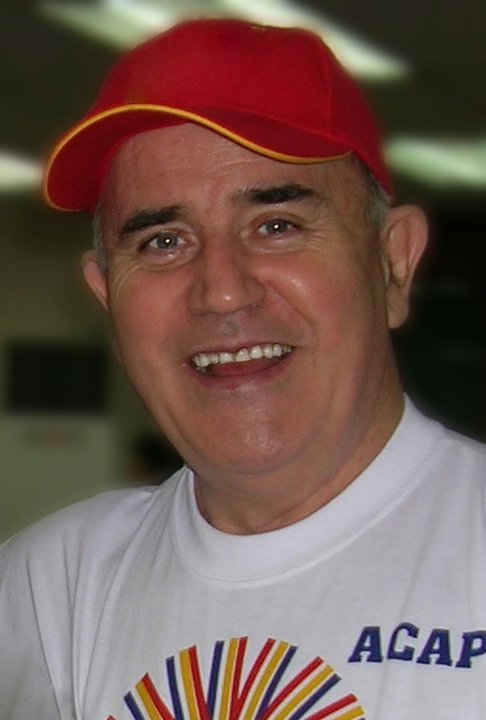
A recent photo of Fr Mickey Martin
We were told that another Columban whom both Jim and I knew from our days as exchange students in our seminary in Ireland, Fr Mickey Martin, was in the hospital recovering from hepatitis. Naturally we felt duty bound to visit him. That was the key to the rest of the story. Father Mickey, as any Columban could tell you, is 'a talker'. He has perfected the Irish penchant for telling a story in colorful but in somewhat extended fashion. Consequently we stayed at the hospital far longer than expected.
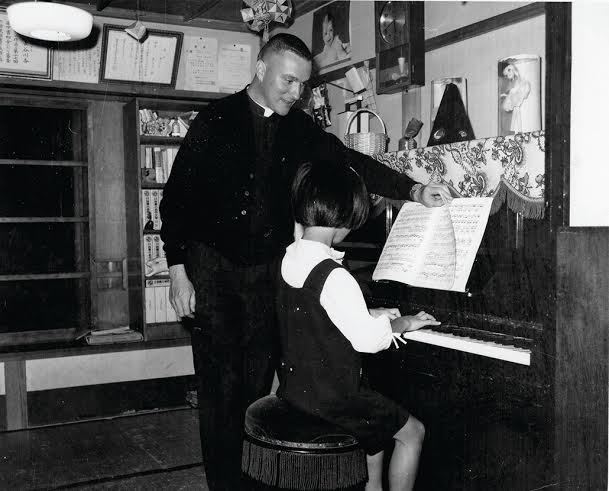
A piano lesson in Japan
Nobuyuki Tsujii, blind from birth, plays his own composition, Elegy for the Victims of the Tsunami of 11 March 2011 in Japan
When we got back on the road and were approaching Bacolod it started to rain and there was more traffic. We pulled up at the tiny airport at 5:32pm to catch a 5:45pm scheduled flight for the 25-minute trip to Cebu. The plane was on the runway, just twenty or so meters from the gate, the door still open. We had our tickets in hand, but the young man at the gate refused to let us board saying the pilot wanted to leave early because of the weather. Argue as we might, he would not let us through. Somewhat disgruntled, we headed back to town and slept in a hotel.
The next morning at breakfast, the manager came over to our table and said, ‘Weren’t you two priests supposed to be on the last flight to Cebu yesterday evening?’ ‘Yes, we were,’ we replied. ‘We missed it by two minutes.’
‘Well thank God you did, it was a good thing you missed it because it crashed into the mountain and all aboard were killed.’ At first, it was unbelievable that we were that close to being on board that flight that killed 17 passengers and four crew members. Father Jim and I looked at one another and he said, ‘Thank the Lord Mickey Martin was a talker, or we would be having breakfast with St Peter this morning.’

A Fokker F27 Friendship like the one that crashed [Wikipedia]
Later that morning, on the short flight to Cebu, the plane hit a number of air pockets and you would have been amazed to see how many rosaries came out of purses and pockets with everyone making the sign of the cross. We later learned that in addition to the two 'No Shows' on that fatal flight, Father Jim and I, there was also one last minute cancellation. It seems that a female passenger had seen the passenger list and saw that there were two foreign priests with the names Duster and Duffy scheduled to be on the plane. Since we didn’t appear, she got off and cancelled her trip. Apparently, she thought it was a bad omen that the two priests scheduled to be on the flight didn’t appear. Call it faith or superstition, but it saved her life.
This close call never would have happened in today’s world with such tight airline security and careful screening before boarding, but things were much looser and relaxed in those days.
How close we came to death didn’t really strike Father Jim and me until later that afternoon when we were reading the accounts and pictures of the crash site in the newspapers. In a sense, it was the most effective spiritual retreat the two of us had ever made.
What did I learn from this 'near encounter' with the Lord? I think at least three things. God must have wanted us to be around for a while longer, so ‘use the time well’ was one lesson. Another was if things don’t go as I had planned or expected, maybe God has a reason. And finally, don’t run for a plane or a train or a bus. If you miss it, maybe you were not supposed to be on it and I haven’t done so since.
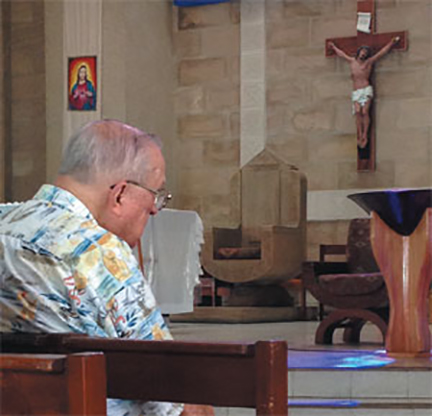
Quiet time with the Lord
Editor’s Note: Philippine Airlines flight PR 385 crashed into a mountain on 6 July 1967, due to poor weather conditions. All passengers and crew members aboard the flight perished. Fr Duster still remembers them in his prayers.
Ask, Seek, Knock
By Sun Hee ‘Sunny’ Kim
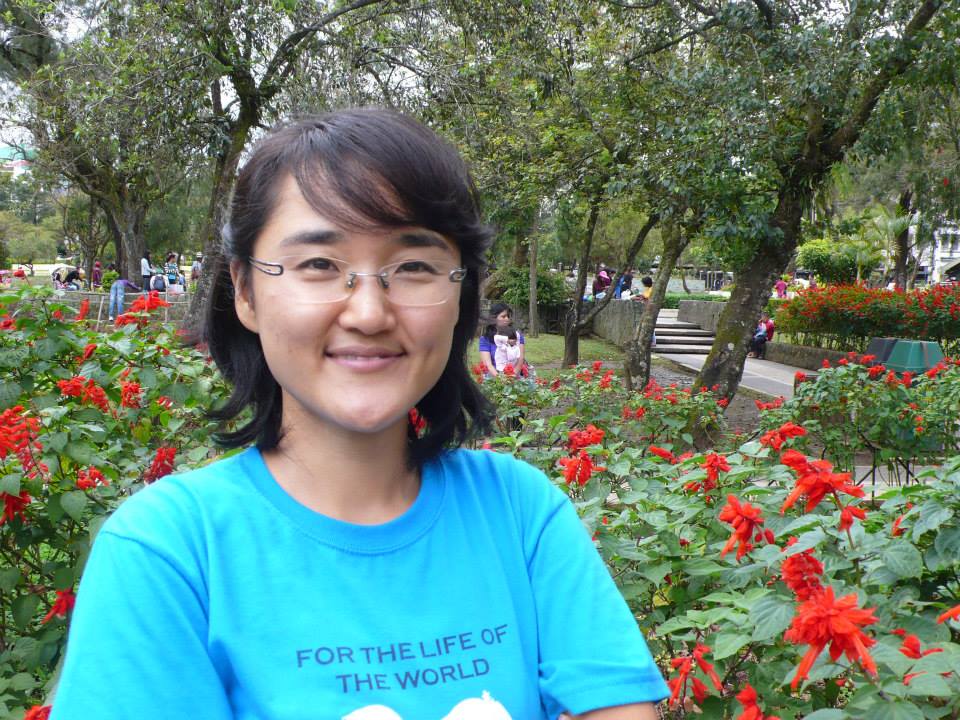
The author is a Columban Lay Missionary from Korea who came to the Phliippines in 2011. This article first appeared on the blog of the Columban Lay Missionaries – Philippines.
In January 2015 I began a new ministry in Payatas, Quezon City, known as the Second Smokey Mountain, the original having been in Tondo, Manila, a landfill that had been used for more than 40 years. I am assigned to the CBR (Community Based Rehabilitation) Center for special children. In the center, physical therapy and learning programs are offered to the children three times a week.
In assisting in the program and spending time with the children in their activities, I found that many of them were underweight and malnourished. I saw the need for a feeding program for them. I was worried about having a stable financial resource to start such a program. I took the initiative to ask around and approached people who were running similar services and shared with them my intention and sought their advice. Through this I got to know about the Joy of Sharing Foundation in Korea. Through a series of processes and reflection I came up with a verse from the Gospels: ‘For everyone who asks, receives; and the one who seeks, finds; and to the one who knocks, the door will be opened’ (Matthew 7:8).
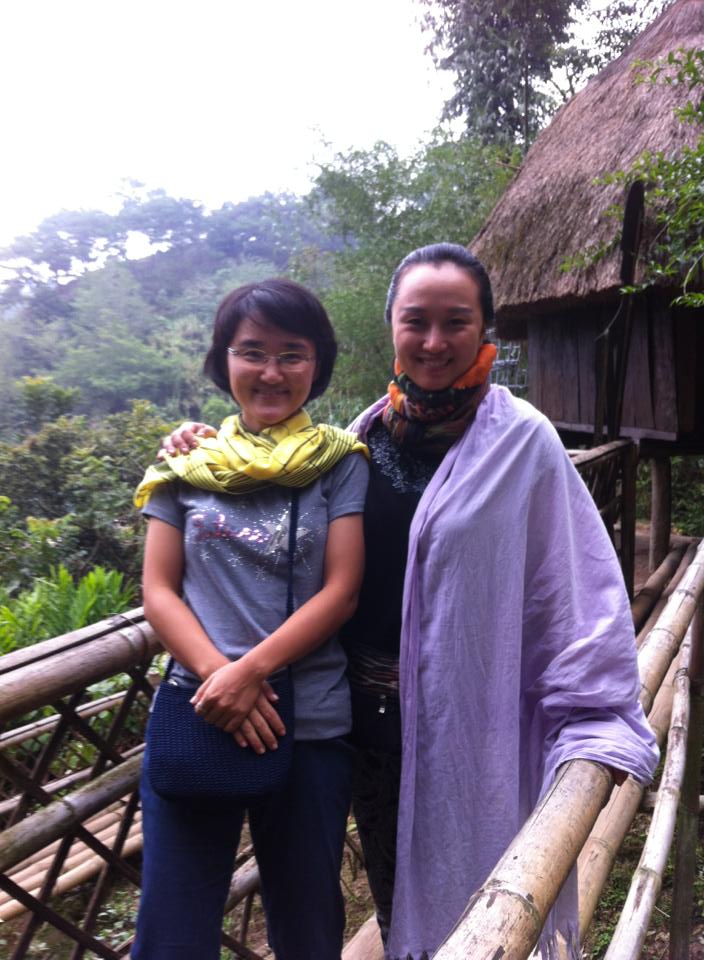
Sunny (L) and Hyein Noh, Columban Lay Missionaries from Korea
I submitted my proposal for the Feeding Project of the CBR Center to the Joy of Sharing Foundation. I was grateful to receive the good news from the Foundation that they had decided to support our project for one year.
The application and donation worked out well with the support of the Columbans in Korea, where I’m from, and here in the Philippines. A very pleasant surprise was that the Chief Director of Joy of Sharing Foundation was visiting projects it was funding in the Philippines and he was able to visit our CBR Center to see our children.
At first it seemed hard to find ways for those involved to have a common point of view about the project. However, when I asked, sought and knocked on God’s door with trust, I found that the way was shown. Nothing is impossible. God knows everything about me; what is necessary for me, what is best for me. He prepares everything and does not force me. God waits for me until I ask, seek, and knock. He will help me.
Thanks to the donations, we started the feeding service to twenty special children in October 2015. They have since gained weight and their parents are happy. Praise and thanks be to God!
Crossing boundaries ‘to the nations’
Bayan Ko, a patriotic Filipino song associated particularly with the overthrow of the Marcos regime in 1986, sung by a Korean choir
The first article in the Constitutions and Directory of the Missionary Society of St Columban declares that it ‘is an exclusively missionary Society sent by the Church ‘to the Nations’, to proclaim and witness to the Good News in Jesus Christ of the full Christina liberation and reconciliation of all peoples’. Part of this involves ‘Crossing boundaries of country, language and culture’.
One area where people cross such boundaries is through music, sharing their own and learning that of others.
Korean Song, sung by the University of the East Chorale, Manila
‘Arirang’ is a traditional Korean song that has many variations. It is considered part of Korea’s cultural heritage.
Because He Loved the Eucharist
By Fr Dominic Derramas
The author is a priest of the Diocese of Bacolod, which includes Bacolod City and the central part of Negros Occidental from Victorias City in the north to Hinigaran in the south. He is from Our Lady of Peace and Good Voyage Parish, Airport Subdivision, Bacolod City.
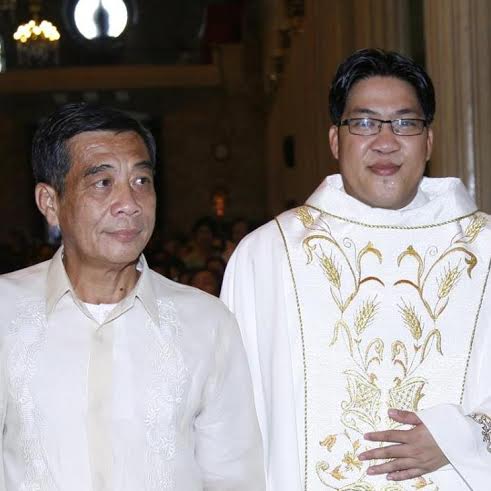
Antonio Derramas Sr and his son Fr Dominic.
Antonio Sr died on 26 August 2015
I can compare the life of my father to the Eucharist, a testimony of love and sacrifice. ‘If the Lord wants to take me, I am ready to go.’ This was the answer he would give every time we would ask him to take care of his health. I remember the first time he said this to me directly. I had been a priest for one year and assigned as parochial vicar in St Mary Magdalene Parish, Hinigaran. My father was president of the Adoracion Nocturna Filipina (ANF), a church-based lay organization of men who devote themselves to prayer and adoration of the Blessed Sacrament. As president, Tatay asked that the ANF’s annual diocesan-wide vigil in honor of the Blessed Mother be held in the parish where I was assigned.

Logo of the ANF
Around two hundred men gathered in our parish and the activity started with a procession around the town. In the middle of their procession it started to rain heavily. Nevertheless, they continued and arrived at the church soaked to the skin. We provided towels and some clothes but not enough for all. My main concern was for my father because I knew that he wasn’t in the best of health. He was just in his second year of retirement after having a heart operation and prone to catching a cold in this kind of situation.
True to his nature, he gave all the towels and dry clothes to his companions first. I was asking him to also take care of himself but he insisted on making sure that the others were dry before looking after himself. In exasperation, I scolded him for not taking care of his health. That was when he told me that what he was doing was for God and that if it was His will, he was ready to die. I had studied the courageous lives of martyrs and saints and in that moment of heated conversation I realized that I was getting a first-hand experience of how one lives that courage.
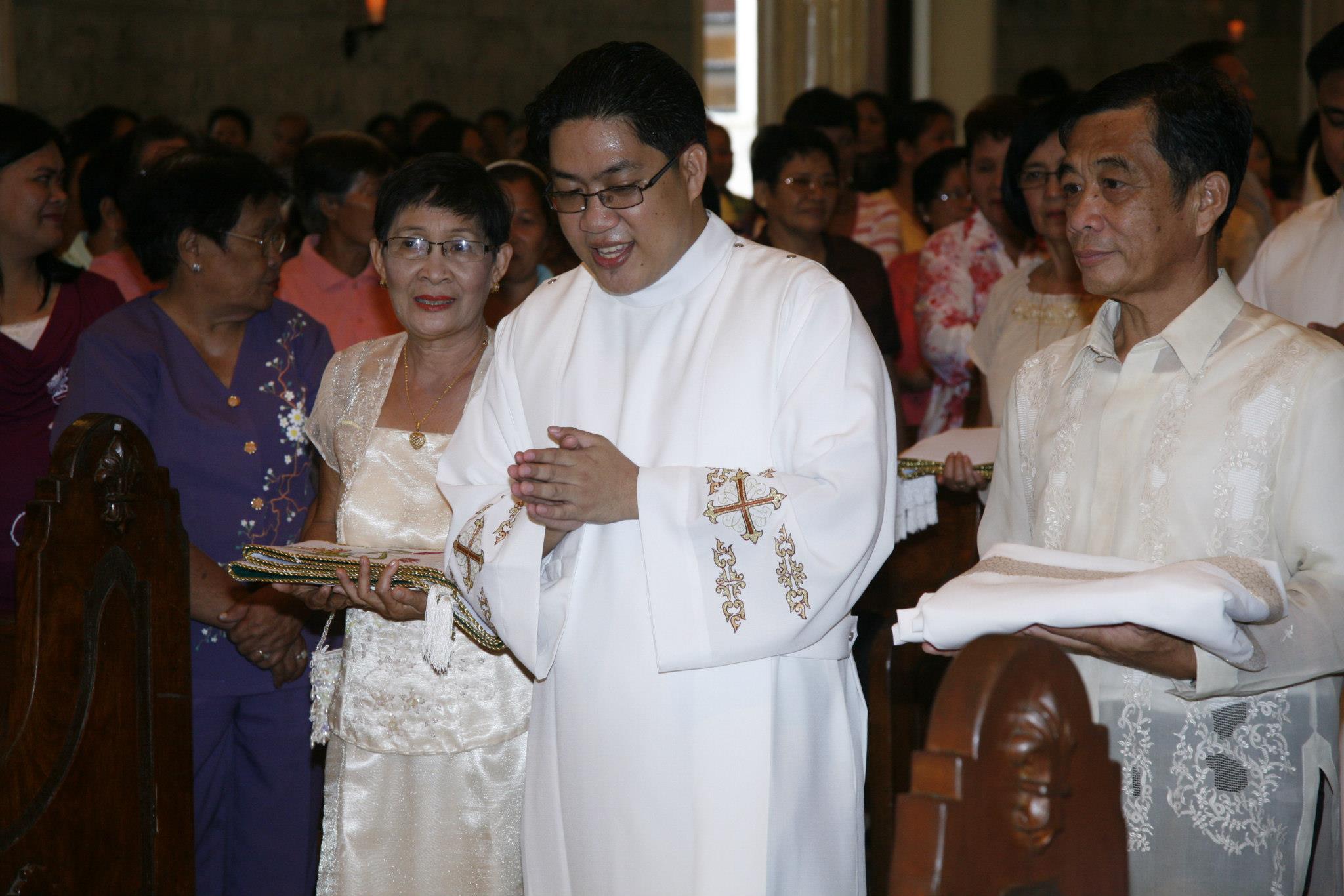
The author with his parents Candelaria and Antonio Sr at his ordination to the diaconate
Tatay knew that he had frail health but he trusted that God would give him the strength to continue in His service for as long as it pleased Him. Intellectually I could understand and even admire this expression of his faith but it was hard for our family, especially for my mother, who had to take care of him.
In a little more than a year after that incident Tatay’s liver failed him and he had to undergo hemodialysis twice a week. His increasingly worsening condition eventually forced him to step down from his position as president of the ANF and from his other church roles, including his work as an Extraordinary Minister of Holy Communion. Despite his failing health, Tatay didn’t want to just rest and relax because he believed that whatever remaining time he would be given here on earth should be passionately spent for God and for others. Even in hospital his visitors would receive what my mother called ‘seminars’ because he still had a lot of advice and admonitions to give to those who would listen.
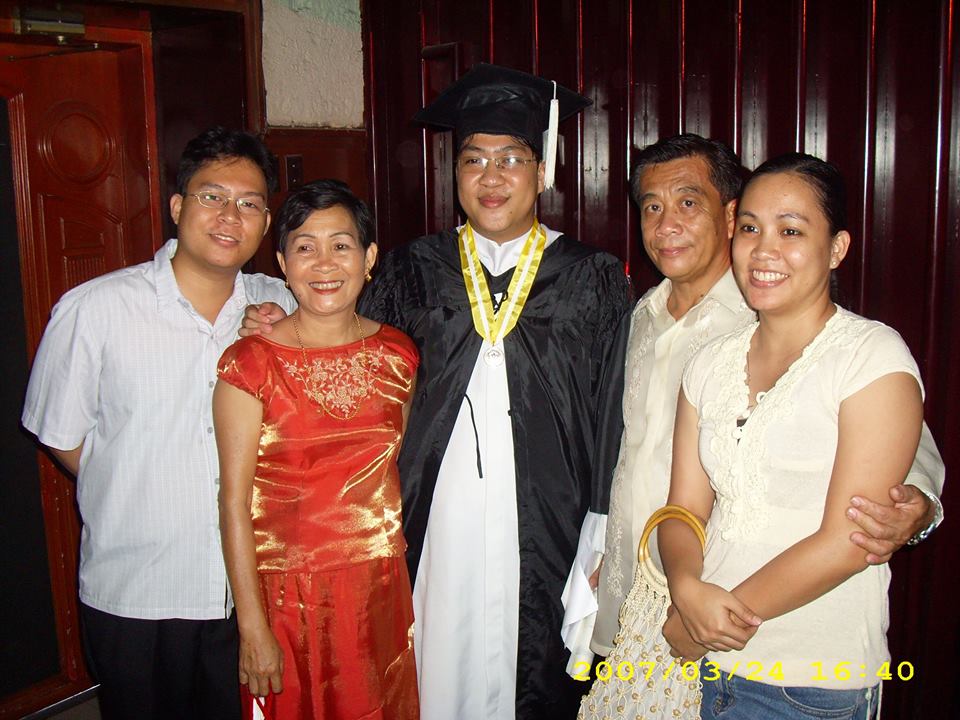
The Derramas Family at the author’s graduation at the University of Santo Tomas, Manila
L to R: Antonio Jr, Mrs Candelaria M. Derramas, the author, Antonio Sr, Jessica
Tatay’s final days were difficult for him. With only the two us in his hospital room, in the middle of the night, he would whisper to God that he was ready anytime that God would be pleased to take him. I knew that in those moments he was suffering in great pain and that I was witnessing how it is to unite one’s suffering to the sacrifice of Jesus on the Cross. What I saw in my father’s last days was his close personal relationship with Jesus in the Eucharist whom he loved so much. I remember him telling me that his love for the Eucharist started when he was still a teen, when he would also join the ANF vigils in his home parish of Sta Barbara, Iloilo.
I have come to appreciate that one of the most important values that he instilled in me and my siblings, from the time we were children, was our love for God and His church, especially love and devotion for the Eucharist. Indeed, this was a significant factor in my vocation story as a priest.
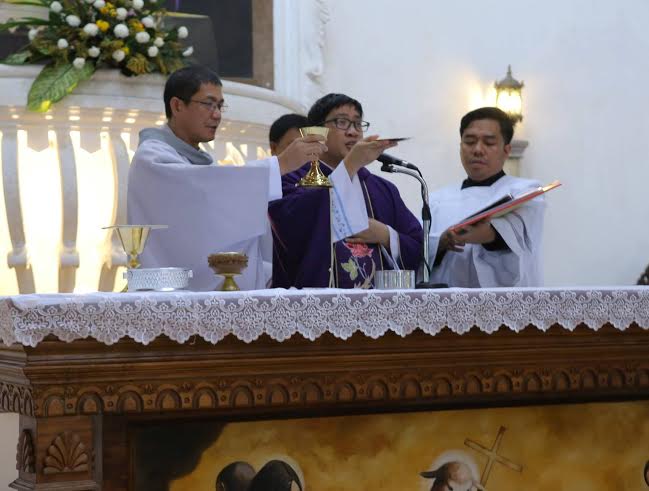
The author celebrating the funeral Mass of his Tatay
Tatay died on 26 August 2015. Until now, a few people have observed that our family didn’t seem to be particularly saddened by his passing. My mother would tell people, ‘How can we be sad when Tatay is finally at rest with His beloved Creator?’ This is the peace that our faith gives us. We have the assurance that death is mere passage to new life. We not only hope, we firmly believe, that Tatay is with God, still with us and still watching over us, and that he is only waiting for us to join him in heavenly glory of eternal life.
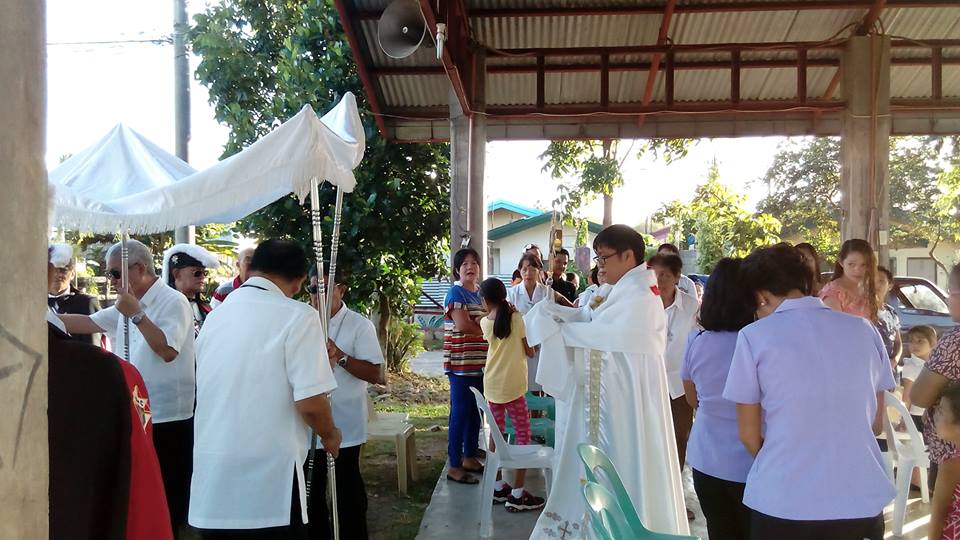
The author during a Eucharistic procession
Every time I raise the Holy Host during the Consecration, a wonderful privilege for every priest, I am called to a deeper devotion to the Sacrificial Lamb, the Lord who loves me unconditionally. And it brings me to pray that I may love Him more and more each day as did Tatay whom He had graced all those years.
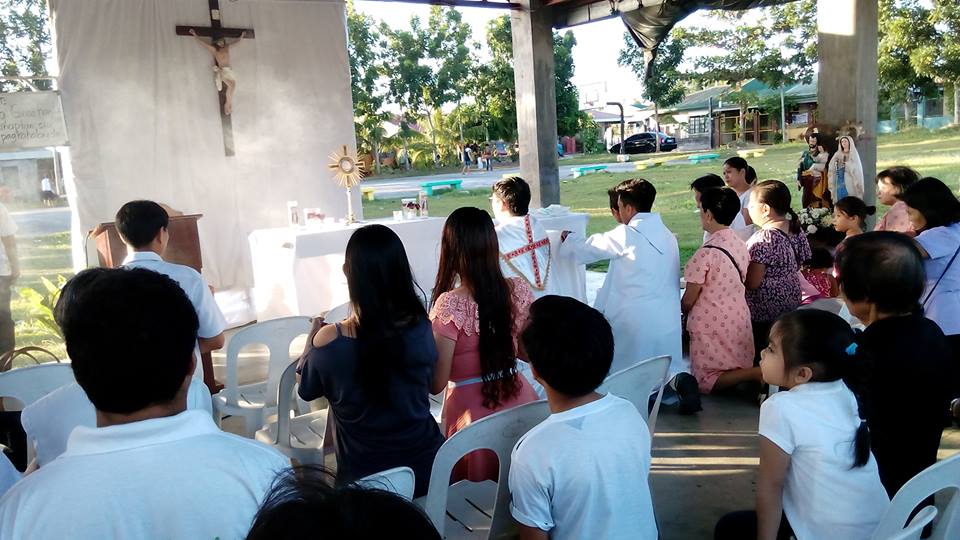
Fr Dominic leading Eucharistic Adoration
Learning Languages, Bridging Cultures
MY MISSION EXPERIENCE IN MINDANAO, PHILIPPINES
By Lanieta Tamatawale
Lanieta Tamatawale is a Columban Lay Missionary (CLM) from Fiji who came to the Philippines in 2003 as a member of a team from Fiji and Tonga. After six years here Lani was assigned back to Fiji for four years as CLM Coordinator. Since 1 Jan 2015 she has been working in Hong Kong as a member of the Lay Missionary Central Leadership Team.
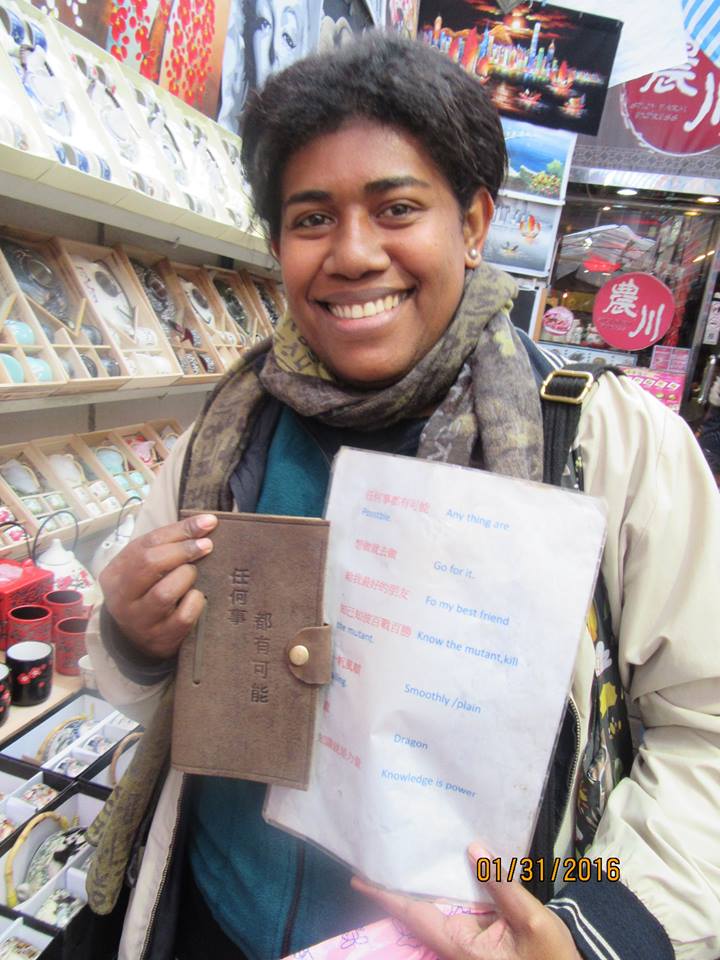
The author in Hong Kong
I first came to the Philippines in 2003. I was shocked by the many people I saw in Manila and by the bumper-to-bumper traffic. Jeepneys and tricycles were new to my two companions and me. They amused us and it took time for us to get use to riding them.
I spent six month studying the Cebuano language in Davao City after which I was assigned to Holy Rosary Parish, Agusan, Cagayan de Oro City. I lived in Barangay Tablon and was asked to organize and form a youth group there.
During my first few months I lived on my own, renting a house. I also worked with the Deaf Ministry. I spent Monday to Friday in the school with Deaf children. Again, I had to learn a new language, Sign Language. I was just getting a grasp of Cebuano and even felt that my knowledge of it was deteriorating. It’s so hard to learn two languages at the same time! It was like my energy was being sucked out every day. But that did not stop me as I was making friends and getting to know more people. The more I got to know them, the more interested I was in becoming proficient in Cebuano and in Sign Language to communicate with and be one with the people.
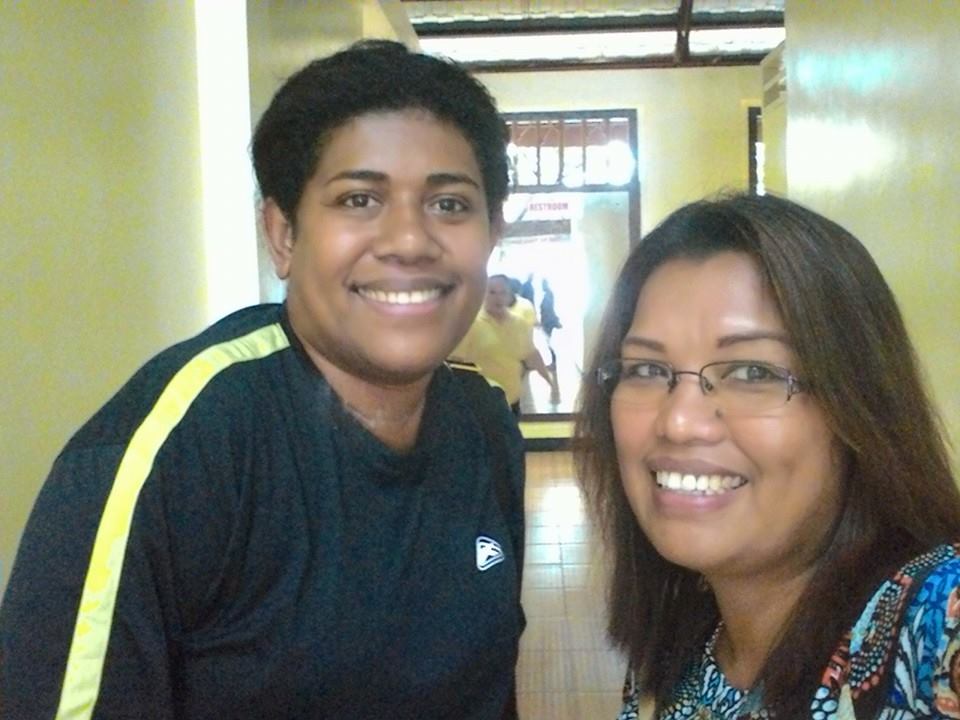
Lani and Vj Arante
My Sign Language teacher, Vj Arante taught me well and was very patient with me. We worked well together as a team and I learned to balance my ministry with the youth. Through the Deaf Ministry I learned Sign Language and the culture of the Deaf. I became friends with Deaf people who became my ‘auxiliary teachers’ in Sign Language. I became part of their lives – visiting their families, listening to their stories, to be their voice, and I loved to be with them and help them in any way I could.
The National Anthem of the Philippines, Lupang Hinirang, in Filipino Sign Language
I also worked in Holy Rosary Parish Kindergarten. I met a boy there named Jude Naliponguit. He lived near the house I was renting. He would say ‘Good morning’ to me, and I would reply ‘good morning’ to him. His mother, Shirley Naliponguit, would only smile as she thought I couldn’t speak Cebuano. But the moment I greeted her in that language she was so happy and started talking to me in Cebuano. I had to tell her though to slow down because I wasn’t yet fluent and couldn’t follow what she was saying if she spoke fast. We both laughed and then she spoke slowly to me. That was the beginning of our friendship. She had two sons whom she would send to my house to keep me company. Most of the time they would feel sorry for me living alone and so would invite me to their family house and share a meal. I was happy with this. They asked if I would like to rent a room near their house and eat with them. I agreed to their suggestion.
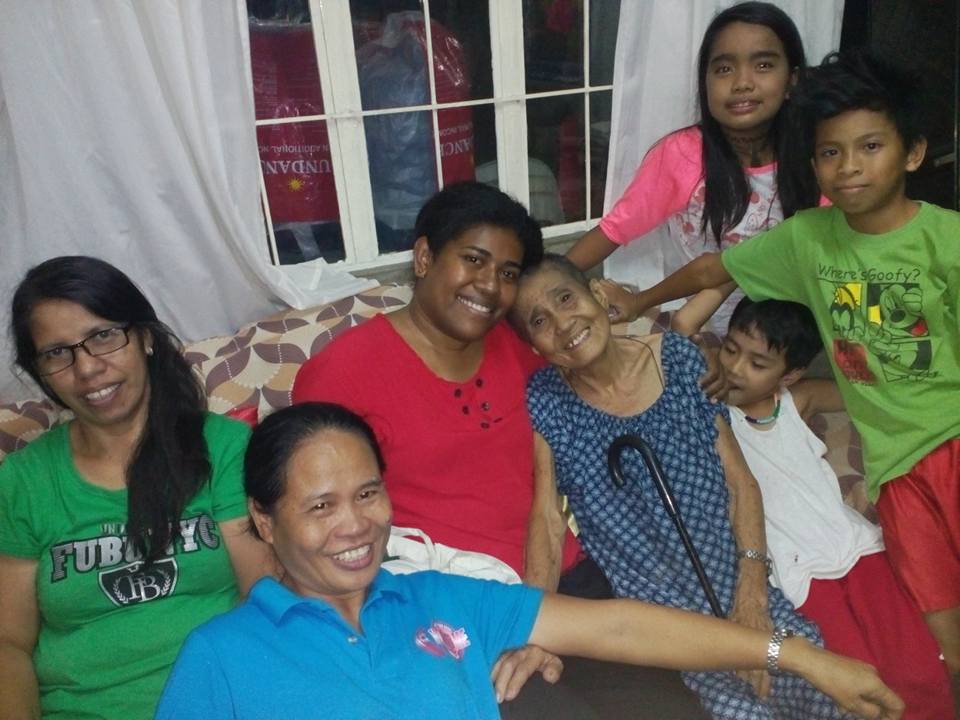
Lani with friends in Mindanao
I felt at home with the Naliponguit family. My Cebuano improved. Nanay Andring, the mother-in-law of Shirley, would speak Cebuano only, not English, to me. I remember, the first time we were alone together at home, she was telling me stories and I kept saying, ‘Oo, Oo’, which means, ‘Yes, yes’. She laughed at me and said, ‘Don’t lie, Lani. You don’t understand but you keep saying “Yes, yes”. I smiled and we both laughed. She said to me, ‘Sorry I won’t talk to you in English because I can’t speak it and I want you to be fluent in Cebuano. You’re learning our language and you should speak it well.’ I was happy with that, because I became really fluent in Cebuano. The whole family spoke to me only in Cebuano. This helped me in my ministry with the youth.
I was happy to have been assigned to Holy Rosary Parish and meet these wonderful people who helped me on my journey as a missionary. They taught me more about the two cultures and two languages I learned during my first three years.
In my second three-year term I was assigned to Ozamiz City. I worked for the BEC (Basic Ecclesial Communities), Vocation Promotion, and continued to work with the Deaf. The local people were surprised that I knew both Sign Language and Cebuano. They were impressed and would ask where I learned both and why I was so fluent. I would tell them that I had worked in Cagayan De Oro City for three years.
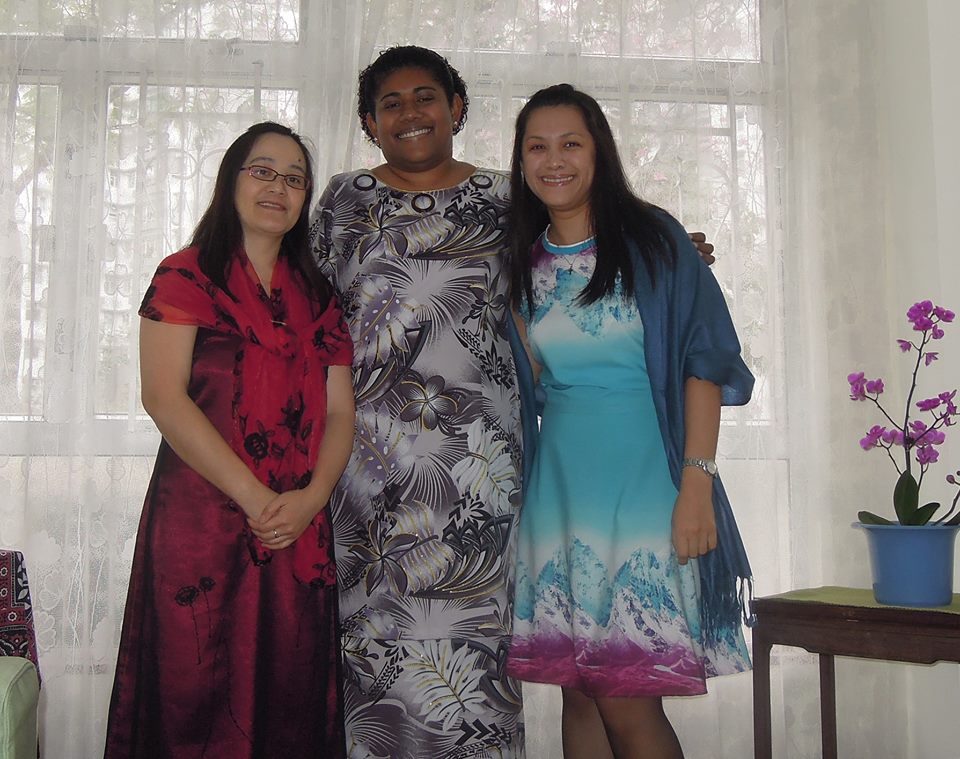
Lay Missionary Central Leadership Team, Hong Kong
L to R: Gracia Kibad (Coordinator), Lani Tamatawale, Jhoanna Resari
Gracia, from Bauko, Mountain Province, Philippines, has spent many years in Ireland. Jhoanna from Rizal, Philippines, was in Taiwan for nine years before the present leadership team took office in 2015.
I enjoyed working in Mindanao, the people being very friendly and hospitable. The most important thing is learning the language and being able to speak it to communicate with the people. Being with the people and chatting with them in their own language brings a sense of belongingness. People know that you are interested in them and in their culture. I always enjoyed when people saw me as a foreigner, thinking that I didn’t know their language, that I could speak only English. When I would speak to them in their language their eyes would light up and they would ask me, ‘You speak Cebuano?’ I would smile and say, ‘A little.’ They would say, ‘Oh you really speak fluently! Is your father an Americano?’ I would only laugh, and sometimes jokingly say, ‘Yes, my mama is Filipina and my papa is a Black Americano’. And they would reply, ‘Ah, half-half ka?’ That always made me laugh.
I am grateful for the wonderful mission experience I had in Mindanao for six years, for the friends and families who accepted me into their lives and were part of my journey, for their kindness, generosity and hospitality. Mindanao will always be my second home. May God bless all those I came to know there!
Singing during Mass, Holy Cross Church, Wairiki, Taveuni, Fiji
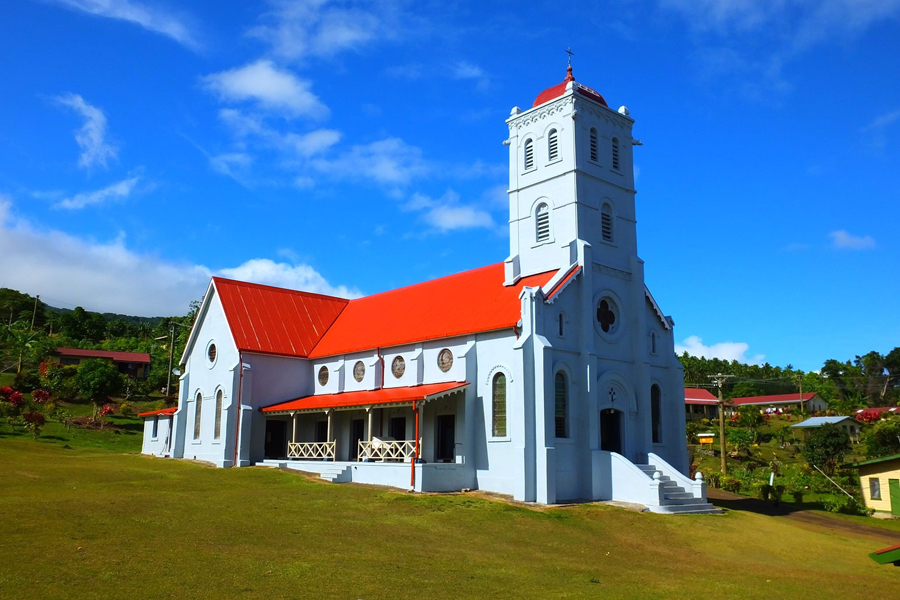
Holy Cross Church [Source]
Holy Cross Parish was established in 1864 by the Marists. Three of the pioneering group of 12 Columbans who went to Fiji in 1952, Frs PJ Kelly (+2006), Martin Dobey (+2007) and James Gavigan, went to Wairiki to learn the Fijian language and get some pastoral mentoring from the Marists. They were there from mid-February until the end of August of that year. Fr Gavigan is now retired in Ireland.
Peace By Peace
May – June 2016
Entertaining Angels: the Dorothy Day Story
Martin Sheen plays Peter Maurin in this movie.
The world would become better off
if people tried to become better.
And people would become better
if they stopped trying to be better off.
– Peter Maurin, Co-founder of the Catholic Worker (1877 – 1949)
Read Peter Maurin: A Fool for Christ

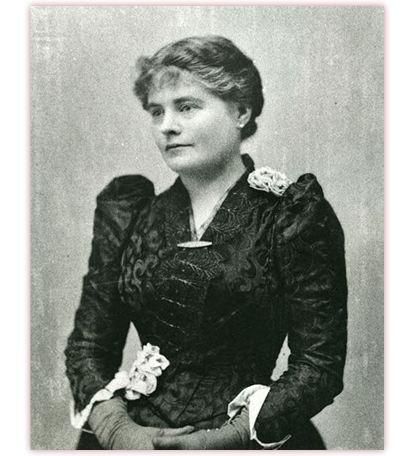
Rose Hawthorne (1851 – 1926) in 1871
Daughter, wife, mother, convert, writer, widow and religious foundress
I tried to acquire a fondness for the very poor, and I finally came to like them very much if they were rather good. But I was not satisfied with liking them; I wanted to love all the poor whom I met.
– Servant of God Rose Hawthorne Lathrop (Mother Mary Alphonsa OP), Foundress of the Congregation of St Rose of Lima, known as the Dominican Sisters of Hawthorne.
Sr Regina Marie of the Hawthorne Dominicans tells her vocation story

Alice von Hildebrand speaks about her late husband Dietrich von Hildebrand, a German Catholic philosopher and theologian and opponent of Hitler.
In life there are moments of darkness. There are periods of discouragement. There are times when we lose sight of the beauty of the sky for all the clouds. You may have to bear severe sickness, or deal with tremendous pain, or you may be disappointed in this or that. But remember, whatever difficulty you have to face, it will not last. It is only a cloud. For God has made each of us with a purpose.
Alice von Hildebrand, Made for Joy

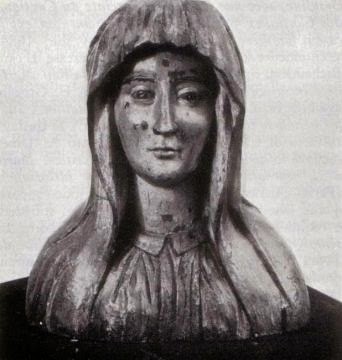
A bust representing Blessed Marie of Oignies [Source]
These tears are my feast; they are my bread day and night; they feed my mind; rather than emptying and afflicting my head they bring satiety to my soul.
– Blessed Marie of Oignies, Mystic (d. 1213)

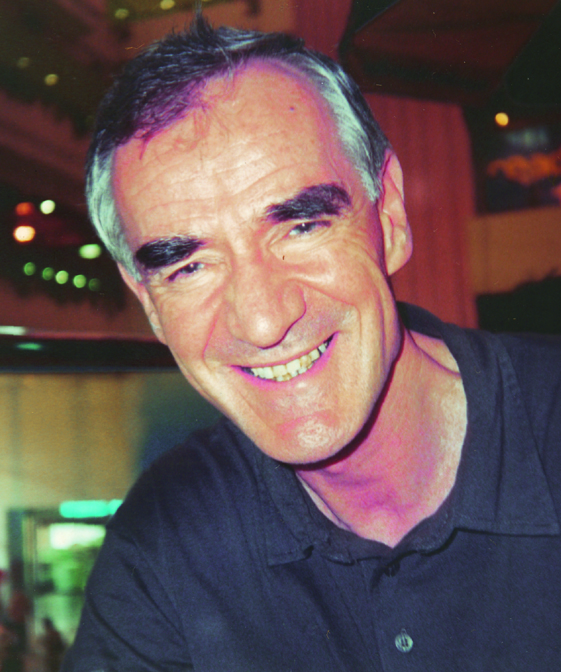
Fr Brendan Lovett
(Quoting Gregory Baum, Community and Identity):
‘If a community creates its identity and produces its national myth by relying exclusively on its own experience, it will never be able to make room for the other as other.’
The other will always be seen as enemy, rival, opponent. The only way to avoid this is to define ourselves dialogically from the start. Of course, the self-understanding of the other may be in need of critique. Then we have to reject their present self-understanding but we must relate to those moments within them which promote a self-understanding worthy of our respect and dialogue. The easiest way for us to develop authentic identity is through solidarity with those in other collectivities who are striving to articulate their identity in dialogical fashion, in openness to the demands of justice towards all groups.
– Fr Brendan Lovett, A Dragon Not for the Killing
The May-June 2002 issue of MISYON carries an interview with Fr Lovett about his book. He is a Columban priest from Ireland who first came to the Philippines in 1967. He has been teaching at the Institute of Formation and Religious Studies (IFRS), Quezon City, for many years.

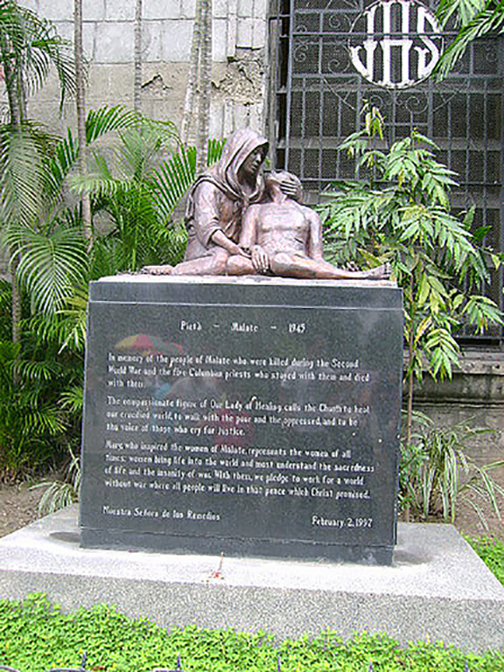
Pietà, Malate Church, Manila
Unveiled in February 1995 to commemorate the 100,000 who died in the Battle of Manila, February 1945
In memory of the people of Malate who were killed during the Second World War and the five Columban priests who stayed with them and died with them.
The compassionate figure of Our Lady of Healing calls the Church to heal our crucified world, to walk with the poor and the oppressed, and to be the voice of those who cry for justice.
Mary, who inspired the women of Malate, represents the women of all times; women bring life into the world and most understand the sacredness of life and the insanity of war. With them, we pledge to work for a world without war where all people will live in that peace which Christ promised.
Nuestra Señora de los Remedios February 2, 1997


L to R:Frs Lalor, Kelly, Douglas, Fallon Monaghan and Heneghan
The five Columban priests in Malate Parish, all Irish, died during the Battle of Manila. Frs Peter Fallon, John Heneghan, Patrick Kelly and Joseph Monaghan were taken away by the Japanese and never seen again. The exact date(s) of their killing and place of burial is unknown but their death anniversaries are observed on 10 February. The fifth priest in Malate, Fr John Lalor was killed by a shell in Malate School, which was being used as a hospital, on 13 February. He is buried there. Fr Vernon Francis Douglas, a New Zealander, was tortured and killed by the Japanese in Paete, Laguna, in 1943 and later taken away. His body has never been found. His death anniversary is observed on 27 July.
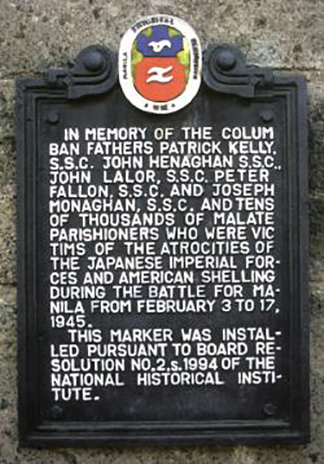
The Government of the Philippines has an excellent online resource: 70th Anniversary of the Battle of Manila.
Pulong ng Editor
ELECTIONS 2016
‘I have a dream that my four little children will one day live in a nation where they will not be judged by the color of their skin but by the content of their character.’ (Martin Luther King, 28 August 1963) [Video of full speech here. Text here.]
Martin Luther King delivered his famous ‘I have a dream speech’ in a particular context. Some southern states of the USA still practiced segregation, ie, separate facilities for white and black people, those for the latter always inferior. This had its origins in the history of slavery in the Americas, the original slaves having been brought from West Africa.
King’s oration wasn’t a political speech. It was an expression of his Christian faith – he was a Baptist minister – demanding justice for all Americans. He was addressing specific issues that have a universal resonance. I have a dream that my four little children will one day . . .
On Monday 9 May Filipinos will elect thousands of officials to everything from the Presidency down to local councilors. The votes of the people will have an impact not only at home but elsewhere. Roughly ten percent of Filipinos are working overseas. Some have gone to other countries as migrants, have settled there and, in many cases, have become citizens of their new country, welcomed and cherished as such. But countless Filipinos have gone overseas as workers, not as immigrants, often exploited by those they work for and by Filipinos in some of the agencies that ‘facilitate’ their going abroad.
Government policy, whether national or local, can often determine whether someone will stay at home, be able to find work, live in a decent house, and send his/her children to good schools.
Vatican II’s Constitution on the Church in the Modern World, Gaudium et Spes, says in No 73: There is no better way to establish political life on a truly human basis than by fostering an inward sense of justice and kindliness, and of service to the common good, and by strengthening basic convictions as to the true nature of the political community and the aim, right exercise, and sphere of action of public authority.
In No 75 the Document states: All citizens, therefore, should be mindful of the right and also the duty to use their free vote to further the common good. The Church praises and esteems the work of those who for the good of men devote themselves to the service of the state and take on the burdens of this office.
In other words, running for office, voting for elected officials at every level of society and serving in office are meant to be expressions of a living Catholic Christian faith. This does not mean that Catholics should vote as a bloc. As Gaudium et Spes says in No 74: The people who come together in the political community are many and diverse, and they have every right to prefer divergent solutions . . . It is clear, therefore, that the political community and public authority are founded on human nature and hence belong to the order designed by God, even though the choice of a political regime and the appointment of rulers are left to the free will of citizens.
In other words, voting responsibly, keeping the common good foremost in mind, is for Christians meant to be a profoundly Christian activity. In your editor’s view, this is far more important a Christian activity than being, for example, a reader at Mass. It is important that those with the faith and ability to do so proclaim the word of God at Mass. But those with that gift are relatively few. All Catholic Christians of voting age have an obligation laid on them by God himself to be involved in the political affairs of the nation by voting for candidates at every level whom they truly believe to be willing and able to work for the common good, citizens who have a dream.
May all of us share Dr King’s dream, a universal, Gospel one, that our children will be judged not by their social status, not by where they are from, but by the content of their character. A citizen’s vote can help fulfill that dream.
Pope Francis visits Tulay Ng Kabataan Foundation, Manila, 16 January 2016
Rising from the Ashes
By Fr John Keenan
The author is a Columban priest who celebrated the Golden Jubilee of his ordination to the priesthood last December and is from Ireland. Apart from some years working in Britain he has been in the Philippines since 1966.
Parola Compound, Tondo, Manila, is one of the largest shantytowns in the Philippines. It is in the capital, Manila, on a long stretch of low-lying land between the Pasig River and the busy North Harbor Shipping Terminal. It is the home to some 4,000 families. On 2 March 2015 a fire, which started from an unattended flame, swept swiftly through the whole area devouring everything in its path.
Because the fire spread so rapidly the residents were lucky to escape with the clothes on their backs. Amazingly, not one life was lost. Fire trucks could do little but hose water from outside since the shacks were haphazardly built with no proper streets; only narrow footpaths that zig-zagged between the houses. By the time the flames died and the smoke began to clear all the houses had been destroyed.
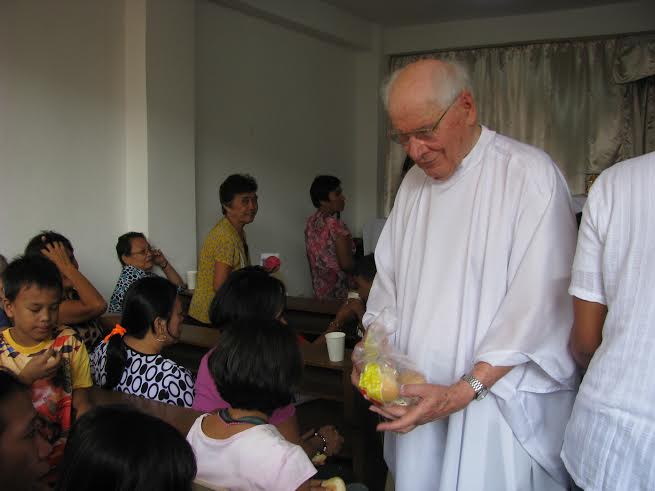
Fr Keenan distributing pandesal after Sunday Mass in Parola
As I made my way there soon after the fire I did not know what to expect or what to say. To my great surprise I was met by an enthusiastic community gathered in their burned-out chapel anxious to have Mass celebrated even though all that remained of the chapel, the altar, seats and statues, was a heap of cinders. I have rarely taken part in such an impressive Eucharist. The singing and joyful participation was truly uplifting. They were praising and thanking God that no lives had been lost.
One of the people said, ‘As long as there is life there is hope and with God’s help all obstacles can be overcome in time. Even though we have lost everything, we are alive and that is what matters.’ To say something like that at a time like that certainly was a great act of faith.
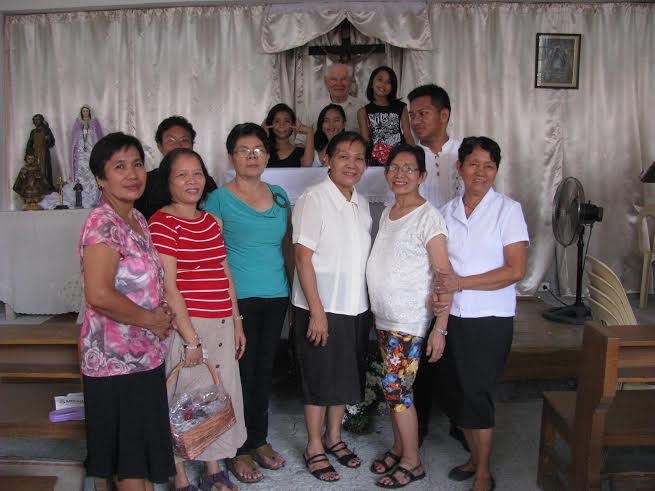
After Sunday Mass in Parola, after the fire
Government agencies offered to relocate many of the families from the water’s edge to nearby provinces but because wages for laborers and tradesmen are low and the cost of travel expensive, many have preferred to stay in Parola, even though living conditions are terrible.
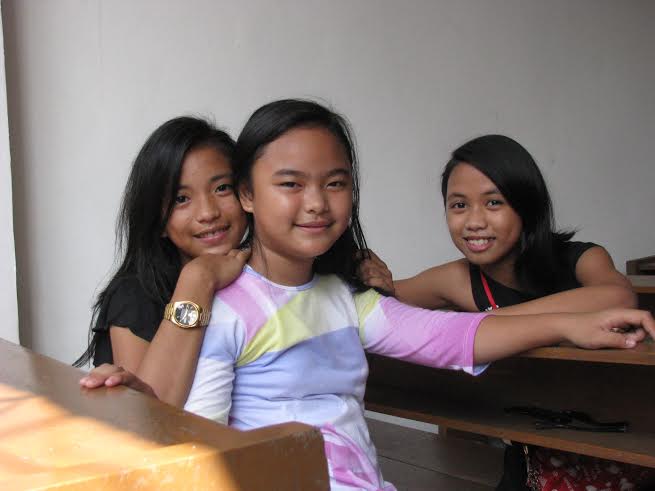
Waiting for Sunday Mass in Parola, after the fire
The shacks have been re-built and the narrow laneways are again full of activities. The voluntary labor of the Christian community members has partially restored their chapel and it remains a work in progress with the support of Fr Jeremiah Adviento, the parish priest. The chapel has been re-roofed and as well as regular Sunday Mass, other activities such as meetings and catechesis take place.
Shantytown fires are not uncommon in the Philippines. Because of its size and destructiveness the one in Parola was a terrifying experience for those who had been forced to make their homes there. Economically they may be close to the bottom of the social ladder. But when it comes to resilience and faith in God and in each other they surely must be counted among those near the top.
You may email Fr Keenan at: johnakeenan@yahoo.com and find him on Facebook: John A. Keenan.
This video was made by Columban Fr Hector Suano, now based in Taiwan. He used to celebrate Sunday Mass in Parola.
The Power of Being Powerless
by Fr G. Chris Saenz
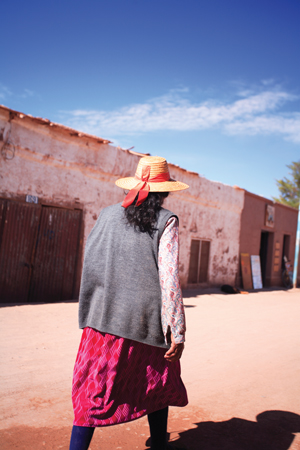
A Chilean Woman
Father Saenz, a frequent contributor to MISYONonline.com, was ordained in 2000. He is from Omaha, Nebraska, USA, where the Columban headquarters in that country are located. He spent part of his formation period in the Philippines. Here he tells an extraordinary story of welcoming new life.
Three or four years ago I was in Tasmania, Australia, for mission promotion work. A school girl in St Patrick’s Catholic College of Launceston asked, ‘What is the hardest thing about working with people in poverty?’ The question stumped me a bit and made me think. Generally, it’s the youth who ask the deep theological questions. After reflecting for a moment, I answered her, ‘the feeling of being powerless to change the situation of the person in poverty’.
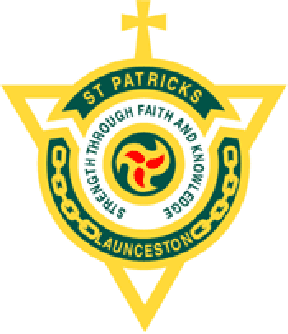
Crest of St Patrick’s College, Launceston
In the missionary vocation one has to be comfortable with being uncomfortable. Often one has to leap without knowing where to land and trust it will all work out. One has to leave the ‘black and white’ world of certainty and desire to be in the ‘grey’ world of doubt. One has to discover power in being powerless. Doesn’t sound easy, and it’s not. So why do it? I do it for people like ‘Maria’.
In my years in Chile Maria is truly one of the poorest people I have met. She used to come to the parish to talk to another Columban priest. She was also friendly with the parish secretary and I often would see her ‘hanging about’ in the office. I didn’t have much to do with her and really didn’t pay much attention to her. When the other Columban priest left the parish he referred Maria to me. So one day she showed up on the doorstep wanting to talk to me. I wasn’t reluctant to talk to her but not overly enthused either. I assumed that she wanted money. I knew she was poor but didn’t know how poor.

Mediagua in Chile [Wikipedia]
Maria lived in a ‘mediagua’, a simple pre-fabricated wooden house in Chile that can be built in a day. There was not much to her home. Her only means of living, from what I knew, was the selling of small handicrafts she made from old yarn and other materials. Sometimes she would come to the church selling her handicrafts. And out of pity, I must confess, I would buy some from time to time. I figured it was honest pay for honest work. Yet, much to my surprise, she never begged for money. Most often she came to the church to ‘desahogarse’ - a Chilean phrase that means ‘to let it all out’. It was during these ‘desahogos’ I discovered that she was a mother.
Students in Chile building a mediagua
Maria was the mother of two children who were taken from her by social services. She suffered from psychological ailments like depression and was unable to care for her children. She never mentioned their father and it seemed that he wasn’t in the picture. She remarked to me that her only true desire was to regain custody of her children but that she was a single mother, too poor, too sick, and with no job to be able to care for them. Maria struggled to find odd jobs but often could not hold on to them. Listening to her story made me feel powerless to help her. There was nothing I could do for her. She in return never asked for any help. I felt more pity for her. I prayed to God, ‘What is the point of all of this?’
One day the secretary came to inform me that Maria was waiting to talk to me. I received Maria and noticed she had a big smile on her face. ‘Father, I came to share my good news with you!’ she said. I was curious. Was she miraculously cured of her aliments? Would she get her children back? Was there a sudden monetary fortune? I waited for the surprise. ‘I’m pregnant’, she blurted. I felt my insides crashing. ‘What was she thinking?’ I thought, ‘so poor and now pregnant.’ ‘With twins,’ she added. It was like a punch to the stomach. I really thought God was playing a cruel joke on both of us.
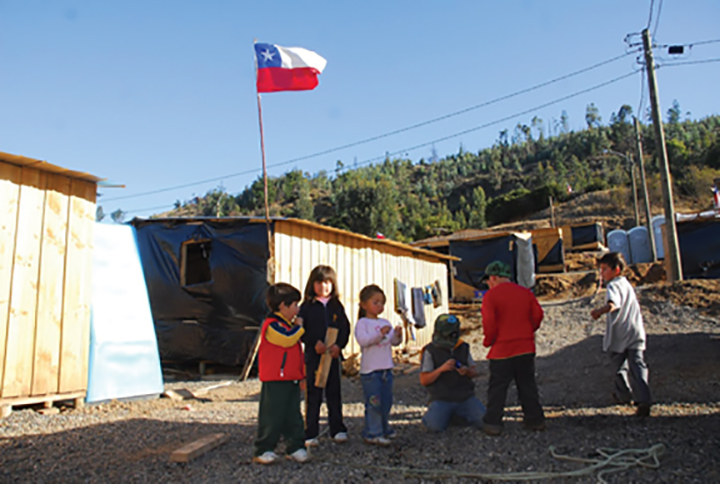
Children in Chile outside mediaguas
Then I looked at her face. Her smile was radiant. It was the first time I saw her truly happy. ‘Father, I am so happy’, she gleefully continued, ‘that God considered me worthy to give life again. I am truly blessed!’ It was as if I heard Jesus’ mother speaking into my ears. I had thought that Maria wanted me to do something about her situation but in reality she just wanted a compassionate hear to listen to her. She just wanted someone to share her joy. I began to wonder if my pity for Maria was more moved by pity for myself - me being helpless. Yet, being helpless made me powerless with Maria. It was something we both shared together. And that is the power of mission. Two people, worlds apart with nothing in common, find commonality in being powerless. It made us equals.
After that I used to see Maria walking in the street with a man, the father I assumed. They embraced and looked happy as a couple. In time Maria did regain custody of her two older children. After that I never saw her again. I don’t know her fate, where she is or what she does. But that is mission. Being powerless - not having all the answers or certainty - but trusting that God is doing what God does best. The power of being powerless.
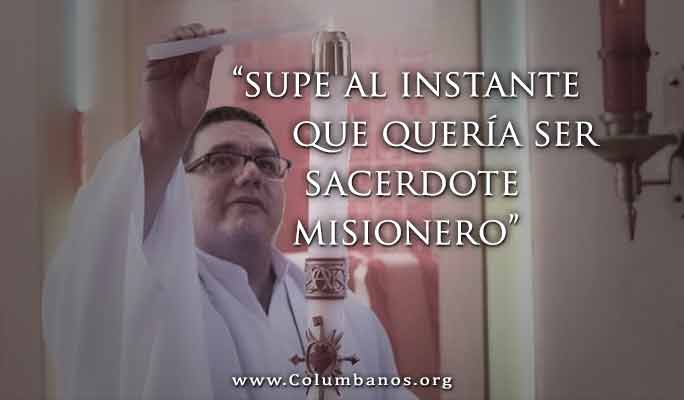
‘I knew instantly I wanted to be a missionary priest.’
To Search is To Find
May-June 2016
How do you know that you have faith? It is said that to see is to believe. But when can a child say in its own name, ‘I have faith in God’?
The Gospel of John (2003)
Directed by Philip Saville Narrator: Christopher Plummer
(John 20:19-31, Good News translation)
‘Seeing is believing’ is a common expression. In one sense St Thomas expresses his faith in the Resurrection of Jesus when he meets the flesh-and-blood Risen Lord (John 20:24-29).
Thomas, called Didymus, one of the Twelve, was not with them when Jesus came. So the other disciples said to him, “We have seen the Lord.” But he said to them, “Unless I see the mark of the nails in his hands and put my finger into the nailmarks and put my hand into his side, I will not believe.” Now a week later his disciples were again inside and Thomas was with them. Jesus came, although the doors were locked, and stood in their midst and said, “Peace be with you.” Then he said to Thomas, “Put your finger here and see my hands, and bring your hand and put it into my side, and do not be unbelieving, but believe.” Thomas answered and said to him, “My Lord and my God!” Jesus said to him, “Have you come to believe because you have seen me? Blessed are those who have not seen and have believed.”[New American Bible, Revised Edition]
Yes, he saw the Risen Lord, touched him and believed. But then he expressed what I think is the most explicit act of faith in the whole Bible: ‘My Lord and my God!’
In a real sense, having met the Risen Lord St Thomas could not have said ‘I don’t believe that it is you, Lord, and that you have risen from the dead.’ The evidence was plain. But his act of faith in Jesus as God didn’t come from clear evidence. It was something much deeper.
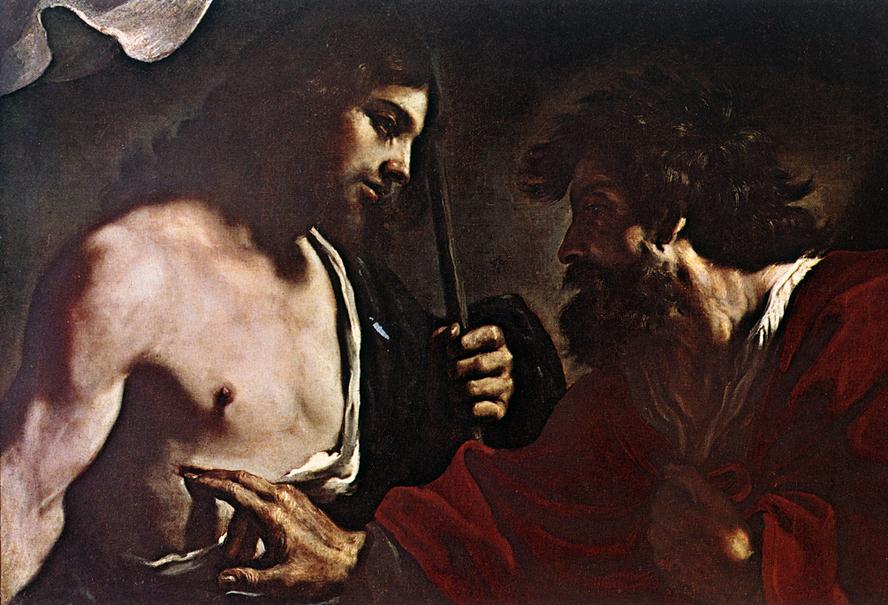
Doubting Thomas, Guercino
Residenzgalerie, Salzburg, Austria [Web Gallery of Art]
The second part of your question is very important. Most of us were baptized as infants and had no say whatever in the matter. Our parents wanted us to be sons and daughters of God the Father, brothers and sisters of Jesus, God who became man, and brothers and sisters of one another in the Christian community. As St Paul says in Galatians 3:28, There is neither Jew nor Greek, there is neither slave nor free person, there is not male and female; for you are all one in Christ Jesus. An aside: We don’t have any say either in the citizenship we acquire at birth.
At the baptism of an infant parents and godparents express their Christian faith in their own name and on behalf of the child. And through baptism the baby receives the gift of Christian faith from God. But at some stage each of us has to own that gift and profess our faith in our own name. We should already be doing that by the time we make our First Holy Communion. In the countries I am familiar with that usually takes place when the child is at least seven and has reached the age of reason, meaning that he/she knows right from wrong.
We have many examples of children and young people who lived their faith to a heroic degree. One of the canonized Korean Martyrs was St Peter Yu Tae-chol, strangled to death for his Christian faith during the persecution of 1839 aged only 13.
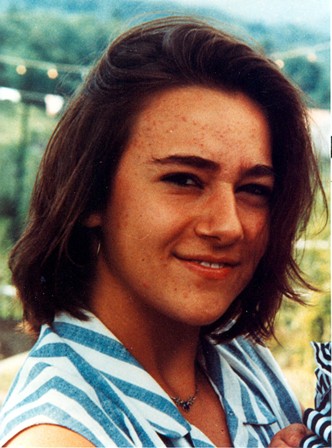
Blessed Chiara Luce Badano
In our September-October 2010 issue we carried the inspiring story of Blessed Chiara Luce Badano (1971-1990), The Saint Who Failed Math. She died from a very painful form of bone cancer that struck her when she was 16. When Cardinal Giovanni Saldarini, Archbishop of Turin, visited Chiara in hospital he asked her, ‘The light in your eyes is splendid. Where does it come from?’ She replied, ‘I try to love Jesus as much as I can.’
This highlights something that both Pope Benedict XVI and Pope Francis have said repeatedly, that our faith is in a person, Jesus Christ, God who became Man. It is being in a living relationship with a loving God, a God who is Three Persons, who dwells in our heart.


